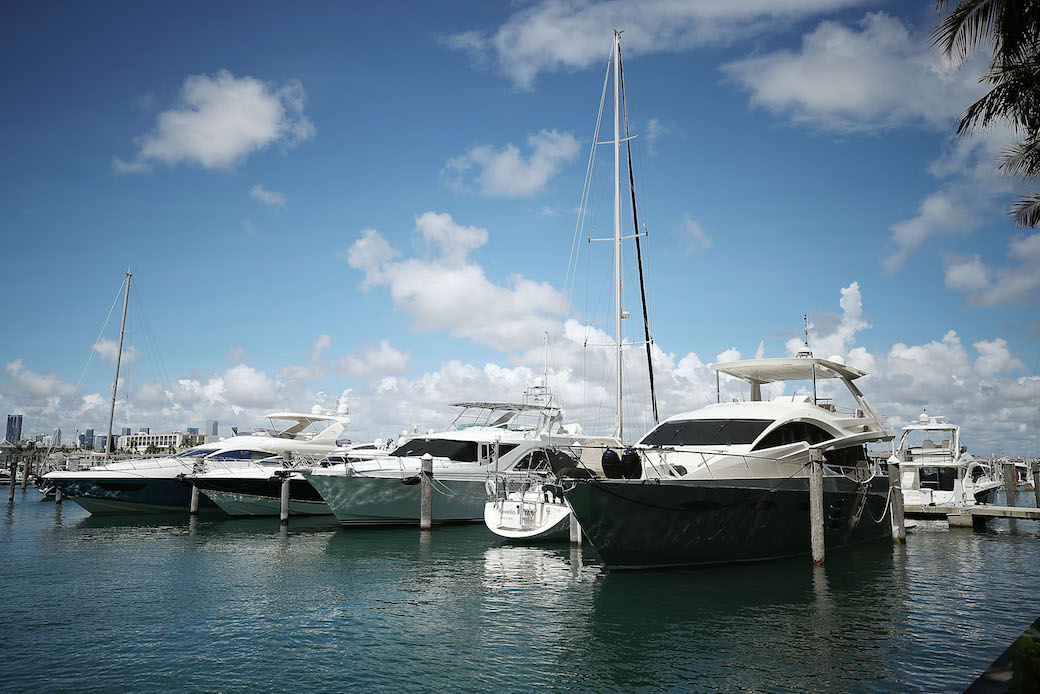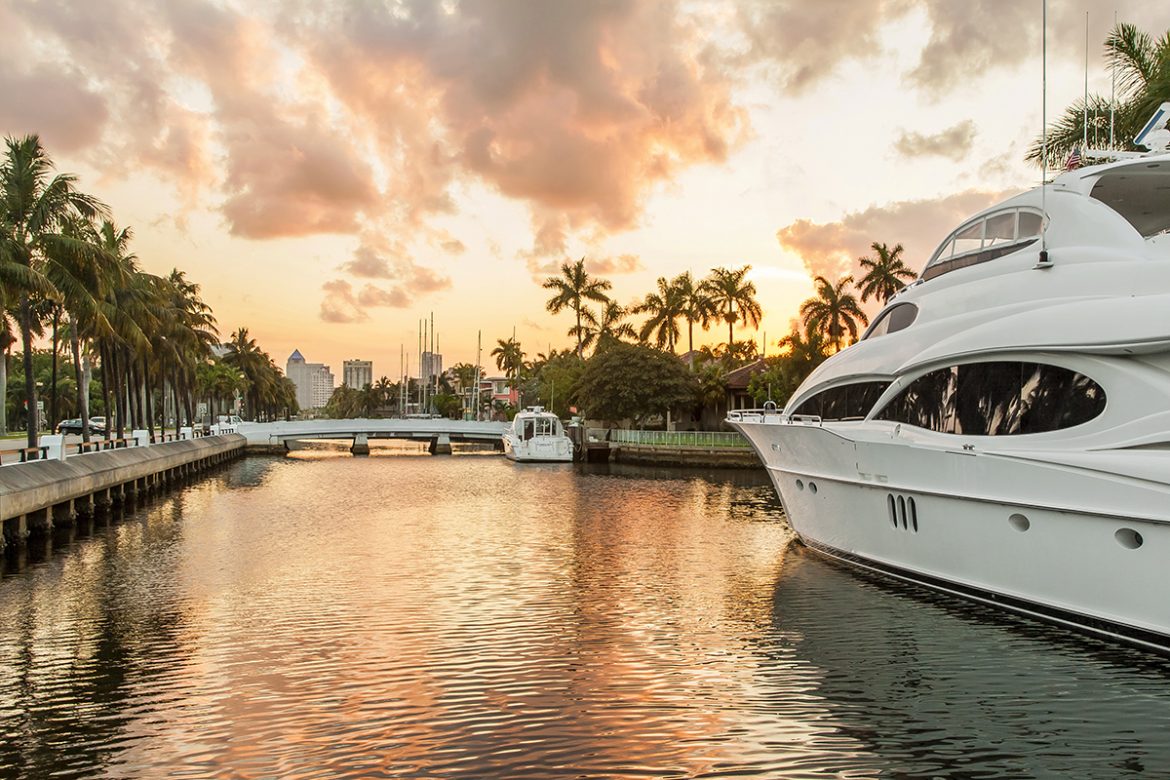Nowadays, the majority of yachts are registered (i.e. flagged) offshore, with the Cayman Islands, Marshall Islands and St. Vincent remaining the most popular registries, as the flag you choose for your superyacht will have a direct impact on your taxes. In most cases, flagging your vessel offshore enables to avoid taxes on the hull value. The savings can be significant, compared to the sales tax value (TVA or VAT) that would have to be paid.

When it comes to U.S. tax regulation, not only the potential buyer but also the seller have to pay certain taxes in order to settle a potential deal. In order to avoid it, as well as strict manning requirements, many yachts are originally listed for sale with a mark ‘not for sale to U.S. residents in U.S. waters’.
The general policy derives from a 111-year-old law, preventing sales of foreign-flagged yachts to U.S. citizens when the boats are in U.S. waters. The law requires foreign-flagged vessels to pay an import fee even before they are offered for sale to U.S. residents while in U.S. waters.

Over the past years, the International Yacht Brokers Association (IYBA) urged the Congress to change the form of the 1908 law. The bills that have been filed would not remove the tax paid on the boat, but would defer payment of it until after the boat is sold.
This situation also often pertains to a yacht registered in another country that is within US waters on a cruising permit.

IYBA executive director Cindy Sailor, has recently reintroduced the bill to the new Congress in an effort to boost the yachting industry and encourage more sales in U.S. waters. He explained:
We’re not asking to get any sort of forgiveness for paying the duty. We are requesting that the time of collection of the duty be changed to when the yacht is sold, rather than when it goes on the market.
He adds:
It’s counterintuitive to pay the import tax on the value of a boat before you know what the actual selling price is going to be. A 1.5 percent tax is sizable and most yacht owners don’t want to pay duty just to put the boat on the market with the hopes of selling it to a U.S. buyer.

Matt Ruane, director of JTC Marine and Aviation, cites some specific reasons the U.S. flag may not appeal to owners of large yachts.
U.S.-resident master and crew are required for all large yachts, unless operating privately and outside of U.S. waters. A U.S. flag requires US corporate or private ownership, and the concept of nominee directors and shareholders is less understood and thus, less acceptable, essentially meaning that U.S. corporate ownership is more transparent.
Still, according to HMY Yachts, the sweeping tax reform, the Tax Cuts and Jobs Act of 2017, has included some new provisions that can provide benefits on yacht purchases and also yachts for charter that are used for legitimate business purposes. The new bill codes around bonus depreciation and will come in effect through 2022.

With this, up to 100% of the purchase price can potentially be written off as bonus depreciation in the year of the purchase if all requirements are met. And there is no dollar limit to the purchase price. That same depreciation applies to any improvements made to the vessel in the same year as the purchase.
To qualify for these benefits, the buyer must be an entity—corporation, partnership, or LLC—that will use the vessel for a legitimate business purpose, for instance, by purchasing a yacht and using it for charter.





